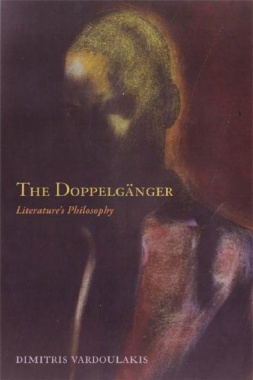The Doppelgänger or Double presents literature as the "double" of philosophy. There are historical reasons for this. The genesis of the Doppelgänger is literature's response to the philosophical focus on subjectivity. The Doppelgänger was coined by the German author Jean Paul in 1796 as a critique of Idealism's assertion of subjective autonomy, individuality and human agency. This critique prefigures post-War extrapolations of the subject as decentred. From this perspective, the Doppelgänger has a "family resemblance" to current conceptualizations of subjectivity. It becomes the emblematic subject of modernity.
This is the first significant study on the Doppelgänger's influence on philosophical thought. The Doppelgänger emerges as a hidden and unexplored element both in conceptions of subjectivity and in philosophy's relation to literature. Vardoulakis demonstrates this by employing the Doppelgänger to read literature philosophically and to read philosophy as literature. The Doppelgänger then appears instrumental in the self-conception of both literature and philosophy.
- Cover
- Contents
- Preface
- Preamble, or An Other Opening
- Introduction, or The Reflections of the Doppelgänger
- 1. The Critique of Loneliness: The Genesis of the Doppelgänger
- Isolation: Toward a Political Placement of the Doppelgänger
- Harrington’s “Flies”: Kant’s Madness
- The Black Nothing and the White Nothing: Jean Paul’s Clavis Fichtiana
- The Return of Negation: Freud’s “The ‘Uncanny’”
- “Double Acts” and Transformation
- 2. The Subject of Modernity: Law and Temporality in Alexandros Papadiamantes
- . . . and . . . : The Doppelgänger as the Subject of Modernity
- Community with the Dead: Self-Confession in The Murderess
- The Penumbra: Obligations
- 3. The Task of the Doppelgänger: Jean Paul as Collocutor of Maurice Blanchot
- 4. The Politics of the Doppelgänger: Universal History and Cosmopolitanism
- Automatism, Autonomy
- The Subject of History in Walter Benjamin
- Displacement: Figuring the Cosmopolitan in Alasdair Gray’s Poor Things
- 5. Self-Inscriptions: Failing Kafka and Benjamin
- The Pure Machine’s Gambit: Benjamin’s “Thesis I”
- World Theater and Nature Theater
- Kafka’s “Lost Gesture”
- Lying with Benjamin
- Notes
- Bibliography
- Index

